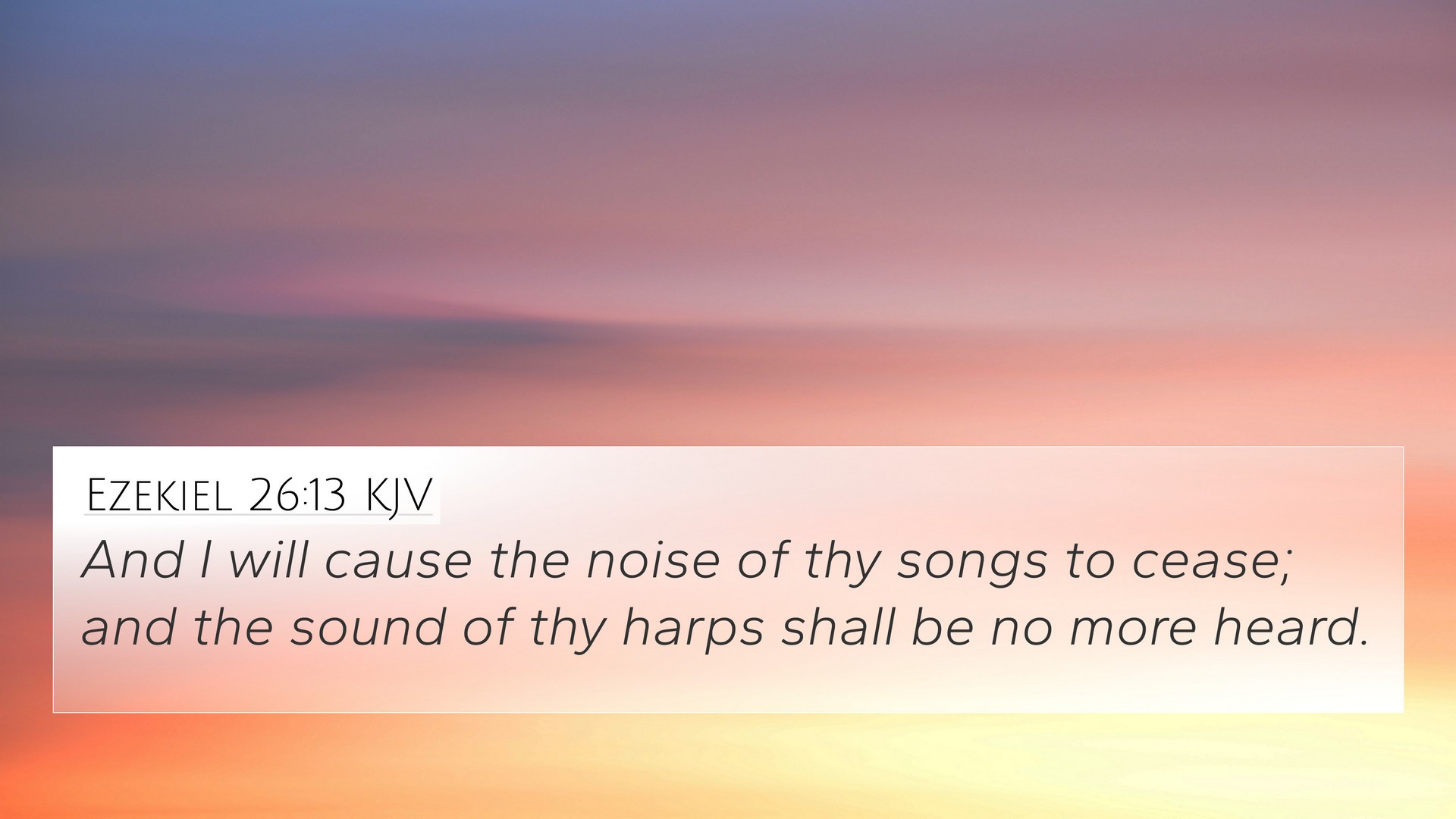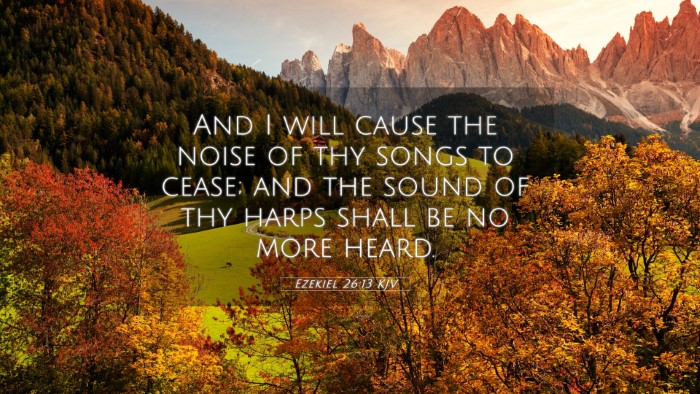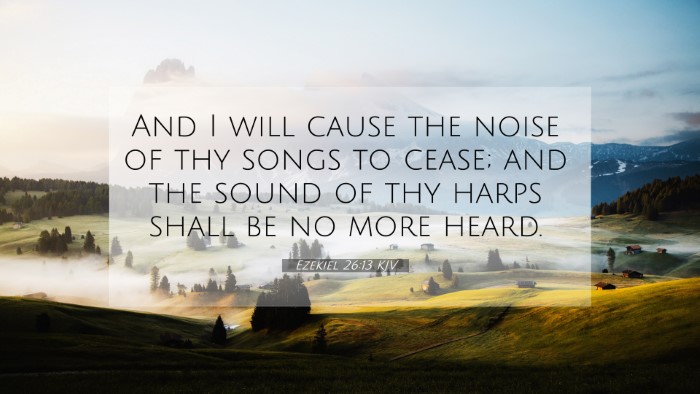This section features a detailed cross-reference designed to enrich your understanding of the Scriptures.
Below, you will find carefully selected verses that echo the themes and teachings related to Ezekiel 26:13 KJV. Click on any image to explore detailed analyses of related Bible verses and uncover deeper theological insights.
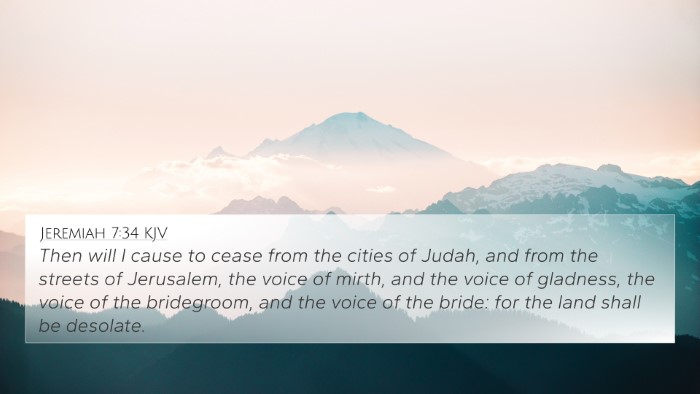 Jeremiah 7:34 (KJV) »
Jeremiah 7:34 (KJV) »
Then will I cause to cease from the cities of Judah, and from the streets of Jerusalem, the voice of mirth, and the voice of gladness, the voice of the bridegroom, and the voice of the bride: for the land shall be desolate.
 Isaiah 23:16 (KJV) »
Isaiah 23:16 (KJV) »
Take an harp, go about the city, thou harlot that hast been forgotten; make sweet melody, sing many songs, that thou mayest be remembered.
 Isaiah 24:8 (KJV) »
Isaiah 24:8 (KJV) »
The mirth of tabrets ceaseth, the noise of them that rejoice endeth, the joy of the harp ceaseth.
 Jeremiah 25:10 (KJV) »
Jeremiah 25:10 (KJV) »
Moreover I will take from them the voice of mirth, and the voice of gladness, the voice of the bridegroom, and the voice of the bride, the sound of the millstones, and the light of the candle.
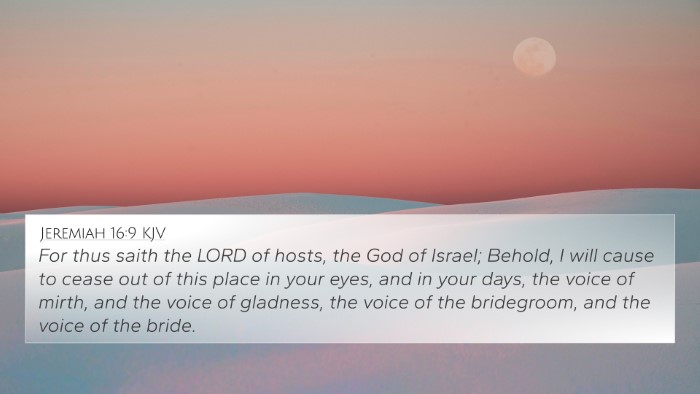 Jeremiah 16:9 (KJV) »
Jeremiah 16:9 (KJV) »
For thus saith the LORD of hosts, the God of Israel; Behold, I will cause to cease out of this place in your eyes, and in your days, the voice of mirth, and the voice of gladness, the voice of the bridegroom, and the voice of the bride.
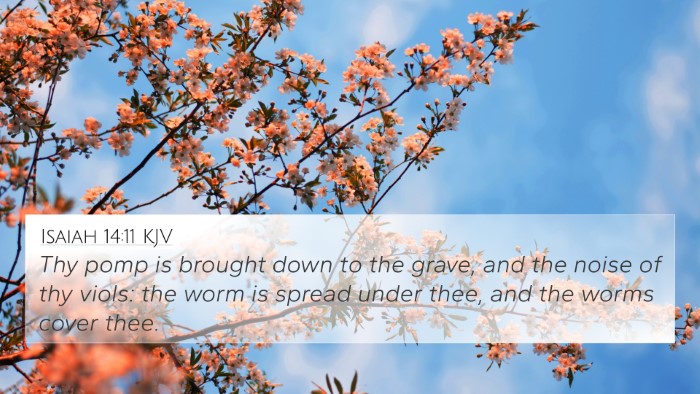 Isaiah 14:11 (KJV) »
Isaiah 14:11 (KJV) »
Thy pomp is brought down to the grave, and the noise of thy viols: the worm is spread under thee, and the worms cover thee.
 Isaiah 5:12 (KJV) »
Isaiah 5:12 (KJV) »
And the harp, and the viol, the tabret, and pipe, and wine, are in their feasts: but they regard not the work of the LORD, neither consider the operation of his hands.
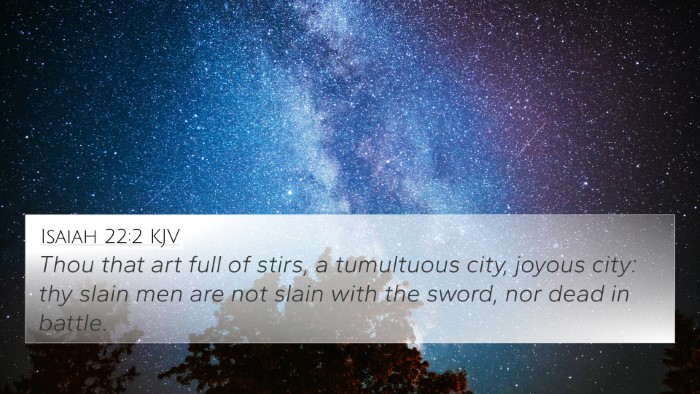 Isaiah 22:2 (KJV) »
Isaiah 22:2 (KJV) »
Thou that art full of stirs, a tumultuous city, joyous city: thy slain men are not slain with the sword, nor dead in battle.
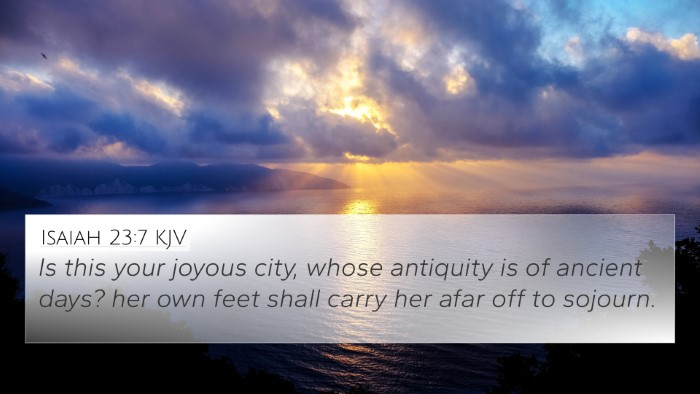 Isaiah 23:7 (KJV) »
Isaiah 23:7 (KJV) »
Is this your joyous city, whose antiquity is of ancient days? her own feet shall carry her afar off to sojourn.
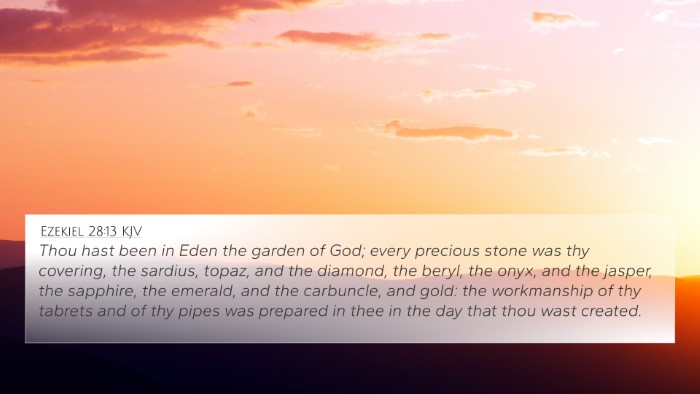 Ezekiel 28:13 (KJV) »
Ezekiel 28:13 (KJV) »
Thou hast been in Eden the garden of God; every precious stone was thy covering, the sardius, topaz, and the diamond, the beryl, the onyx, and the jasper, the sapphire, the emerald, and the carbuncle, and gold: the workmanship of thy tabrets and of thy pipes was prepared in thee in the day that thou wast created.
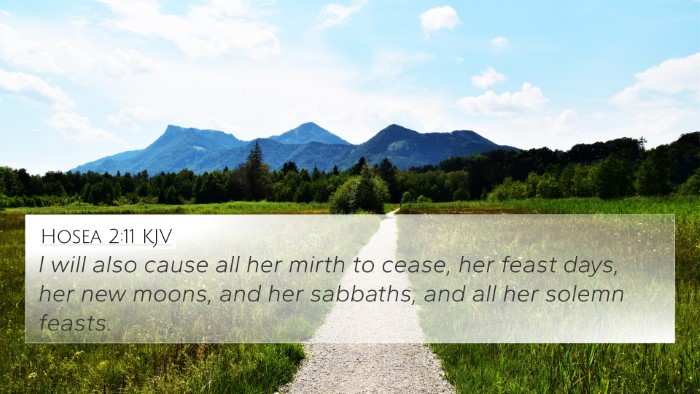 Hosea 2:11 (KJV) »
Hosea 2:11 (KJV) »
I will also cause all her mirth to cease, her feast days, her new moons, and her sabbaths, and all her solemn feasts.
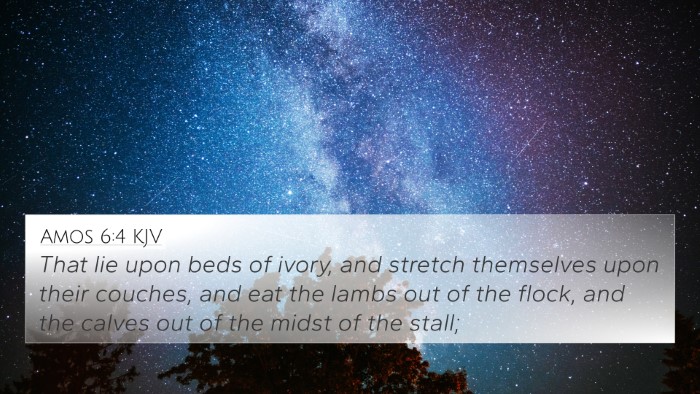 Amos 6:4 (KJV) »
Amos 6:4 (KJV) »
That lie upon beds of ivory, and stretch themselves upon their couches, and eat the lambs out of the flock, and the calves out of the midst of the stall;
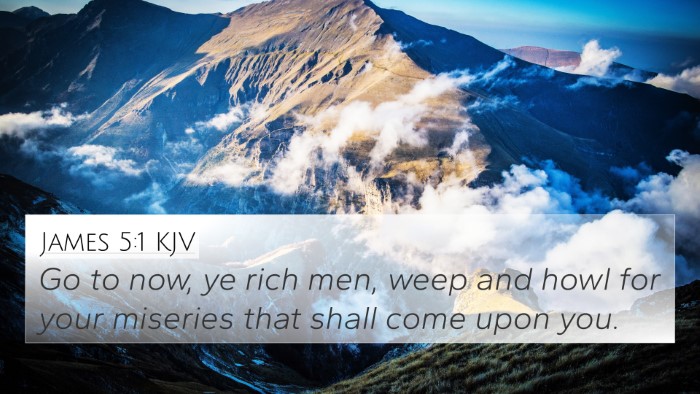 James 5:1 (KJV) »
James 5:1 (KJV) »
Go to now, ye rich men, weep and howl for your miseries that shall come upon you.
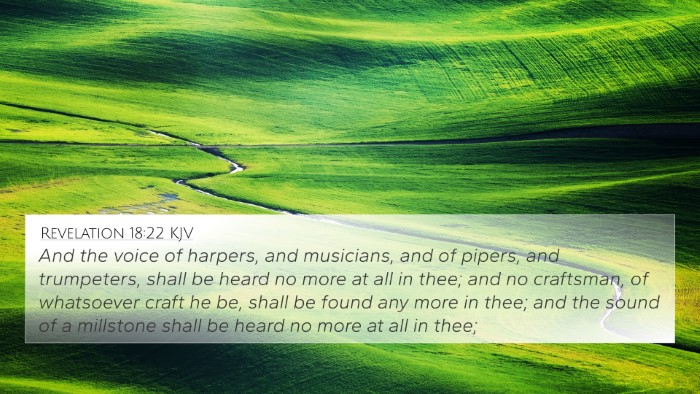 Revelation 18:22 (KJV) »
Revelation 18:22 (KJV) »
And the voice of harpers, and musicians, and of pipers, and trumpeters, shall be heard no more at all in thee; and no craftsman, of whatsoever craft he be, shall be found any more in thee; and the sound of a millstone shall be heard no more at all in thee;
